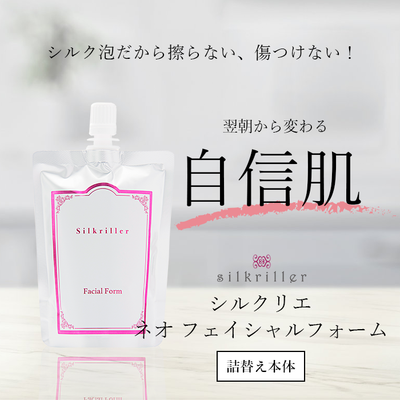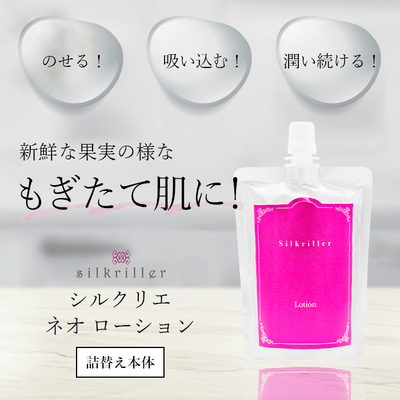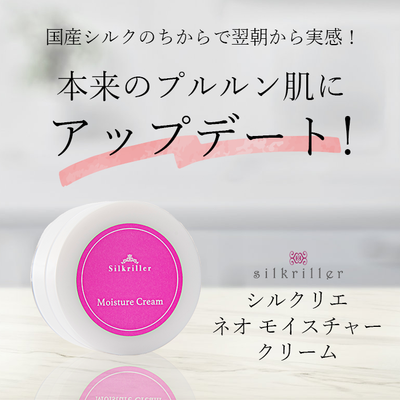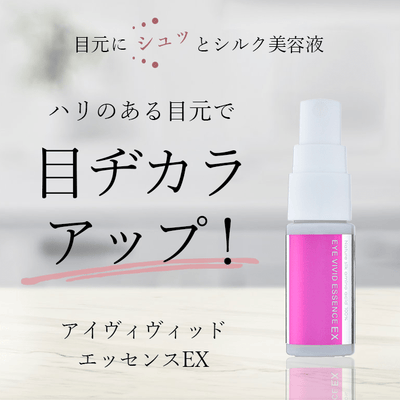

A facial cleanser that reduces friction, a cause of aging, and clears away dullness

The skin may suddenly become tingly or itchy. Sensitive skin is a common skin problem for many of us. Many people worry about what to do about their skin care .
In order to deal with it properly, let's first understand the symptoms and causes of sensitive skin. We will also introduce care methods and recommended items for sensitive skin.

Sensitive skin is "skin in an unstable state where the barrier function has been weakened and it is sensitive to stimuli." Sensitive skin is often perceived as one of the skin types, just like oily skin and combination skin, but in fact there is a slight difference in nuance.
The barrier function is the skin's natural protective role. Thanks to this barrier function, the skin retains moisture and is able to protect itself from external stimuli such as ultraviolet rays and the intrusion of foreign substances such as allergens.
The three factors that hold the key to the skin's barrier function are "NMF (natural moisturizing factor)," "intercellular lipids," and "sebum film." These factors exist in the stratum corneum, the outermost layer of the skin, and each has a role to play.
"NMF (natural moisturizing factors)" store moisture in the skin. "Intercellular lipids" fill the gaps between cells to prevent moisture from escaping, while also blocking foreign substances from the outside world. On top of that, the "sebum film" coats the skin like a veil, firmly protecting it. The skin's barrier function is maintained by the cooperation of these three factors.
However, when these three factors decrease, the skin's barrier function breaks down. Gaps form between cells, allowing essential moisture to escape more easily and making the skin more vulnerable to external stimuli. As a result, the skin becomes dry and sensitive to even the slightest things. Sensitive skin is more prone to problems, and skin that already has problems has an even weaker barrier function and becomes more sensitive. This negative loop is the true nature of persistent sensitive skin.
So what kind of problems does sensitive skin cause?
Sensitive skin can cause a variety of problems. Do you have any of these skin problems?
These skin problems are typical signs of sensitive skin. Even if you don't feel any particular skin problems, your skin may suddenly become more sensitive than usual.
The causes of sensitive skin are hidden all around us in our daily lives. What causes are they related to sensitive skin?

Sensitive skin is mainly caused by a weakening of the skin's barrier function. In other words, the causes of weakening the skin's barrier function are what lead to sensitive skin. There are both external and internal causes of weakening the skin's barrier function.
1. Dry air Dry air robs the skin of moisture. In addition, dry air also reduces the skin's sebum secretion. You need to be careful not only of the dry air outside in autumn and winter, but also of the wind from air conditioners in summer.
② Incorrect skin care <br> Improper skin care, such as irritation from cosmetic ingredients that do not suit your skin, washing your face or cleansing too much, can lead to sensitive skin. If you notice any discomfort on your skin, first review your usual skin care routine.
3) Friction <br> Friction caused by wearing a mask or scrubbing the skin can irritate and lead to sensitive skin. Be as gentle as possible with your skin.
④ UV rays <br> UV rays are also one of the things that irritate the skin. Delicate skin is more susceptible to damage from UV rays. Choose products according to the season and your skin condition to protect yourself from UV rays wisely.
④ Irritating substances from the outside world <br> Air pollutants such as yellow sand and PM2.5, as well as pollen, dust mites, and dust, can irritate the skin. Be especially careful during seasons when air pollutants and pollen fly more frequently.
① Lifestyle <br> Irregular lifestyle habits have a negative effect on skin turnover (the system by which the skin regenerates). When the turnover cycle is disrupted, the skin's barrier function weakens and it becomes unstable. Review your lack of sleep and unbalanced diet, and get your lifestyle in order.
② Stress <br>Excessive stress can lead to hormonal imbalance and a weakened immune system. This can lead to disruption of cell turnover, affecting the skin's barrier function and making the skin sensitive. Effective stress relief is also important for beautiful skin.
③ Changes in hormone balance <br> Skin can become sensitive during periods when there are major changes in female hormones, such as menstruation, pregnancy, and menopause. In some cases , a decrease in female hormones due to aging can also lead to sensitive skin.
④ Constitution <br> If you have sensitive skin to begin with, you may be oversensitive to things that don't bother other people. If you notice any discomfort in your skin, consult a medical institution as soon as possible.
Skin with a weakened barrier function and sensitivity is no longer able to resist various stimuli. Simply leaving the skin's barrier function alone will not restore it to its original state. Appropriate measures are required.

In order to restore sensitive skin, it is first necessary to restore the skin's barrier function. For this, moisturizing is important.
The barrier function is balanced by the balance of moisture and oil in the skin. In other words, if the balance of moisture and oil in the skin is lost, the barrier does not function properly and cannot resist external stimuli. First, let's give the skin enough moisture and restore sensitive skin.
Be sure to keep these things in mind while staying well hydrated.
It is important not to irritate delicate skin. Avoid scratching or rubbing the skin as much as possible. The golden rule for caring for your skin is to be "careful and gentle."
Disruption in turnover is one of the causes of a decline in the skin's barrier function. In order to regulate turnover, you should review your daily life. Getting enough sleep, eating a balanced diet, avoiding stress, and keeping the body cool are just a few small steps that will lead to healthy skin.
Cosmetics that don't suit your skin can also lead to sensitive skin. If you feel any discomfort on your skin, stop using the cosmetics you are currently using and switch to products that are hypoallergenic or can be used on sensitive skin.
Just like with preventative measures, daily care is also important. What kind of skin care should you use for sensitive skin?

When it comes to skin care for sensitive skin, it is essential to "avoid irritation as much as possible" and "avoid putting strain on the skin." Please keep the following points in mind when caring for your skin.
Sensitive skin can cause problems even with the slightest thing. That's why you need to be careful about the products you use. When choosing products, be sure to check the ingredients carefully so you don't end up regretting it later after damaging your skin.
You might think that checking ingredients is difficult, but did you know that it's actually quite easy? Take a look at the product packaging. There you'll see a list of the ingredients that are in the item.
Even items in the same category use different ingredients. That's why we recommend checking the ingredients and comparing them when choosing an item. Choose the item that's perfect for you and start your skin care routine.
Cosmetics are our ally in keeping our skin beautiful. However, some ingredients in cosmetics are of concern to those with sensitive skin. Everyone's skin is different, and there are different ingredients that don't suit each person. If you feel there is a risk to your skin, it is also important to choose not to use the product .
Ingredients to be careful of when you have sensitive skin
Alcohol is used in cosmetics for various purposes. Some people have sensitive skin and develop allergic reactions. The alcohols used in cosmetics are "ethyl alcohol" and "ethanol." However, there are also completely different ingredients that have "alcohol" in their name. In fact, hepyl alcohol and stearyl alcohol are different ingredients and are widely used in alcohol-free cosmetics.
Surfactants are ingredients used in cosmetics to improve foaming and cleaning. Petroleum-based surfactants are made from petroleum.
Mineral oil is oil made from petroleum. It is also known as mineral oil. In the past, mineral oil contained many impurities, but refining technology has improved and its quality has improved.
Fragrance is a general term for ingredients that give products their scent. Even if they are all labeled as "fragrance," the ingredients they actually contain vary from product to product, and it is not possible to know what is in the product just by looking at the packaging.
When choosing skin care products for sensitive skin, there are other important points to pay attention to besides the ingredients. Next, we will introduce these important points.

There are three things to look out for when choosing skin care products for sensitive skin:
Moisturizing is essential for caring for sensitive skin. Choose highly moisturizing products that deliver moisture to every corner of your skin and keep it fresh. * Deep into the stratum corneum
Irritation is not good for sensitive skin. Choose products that are designed to be hypoallergenic. Of course, even after applying them to the skin, be gentle and don't irritate it.
Because sensitive skin can be easily affected by even the smallest of things, we recommend simple products that contain as few unnecessary ingredients as possible. Check the product packaging to make sure.

When it comes to dealing with sensitive skin, one size does not fit all. This is because everyone has different skin types. If you use a method that is not suited to your skin type, unfortunately, you will not get the full effect.
Oily skin has more sebum secretion than other types. When skin becomes sensitive, it is prone to acne, breakouts, redness , etc. The cause of excess sebum is that even if the surface of the skin appears moisturized with sebum, the inside of the skin is dry. When the skin is not hydrated enough, it produces excess sebum to protect its moisture.
The key to skin care for oily, sensitive skin is to first gently wash away sebum with a mild facial cleanser. Then, moisturize with plenty of lotion to restore the balance of moisture and oil in your skin. Keep your skin clean and protect it with a moisture barrier.
Stress-induced autonomic nervous system disorders lead to stress-sensitive skin. When the autonomic nervous system is disturbed, skin turnover becomes unhealthy and the barrier function is weakened. Stress also affects the balance of female hormones.
The key to skin care for stress-sensitive skin is not only to moisturize thoroughly, but also to relax. Skin care is time to face yourself. Take a deep breath, gently pamper your skin, and free your mind from daily tension and stress. It's nice to have that time to "take a break" with cosmetics that you can use comfortably every day.

Skin that is beginning to show signs of aging has less moisture and is prone to drying . In addition, the skin's turnover rate slows down, weakening its barrier function and making it more susceptible to fluctuations.
For sensitive skin with signs of aging, it is recommended to use products that deliver moisture to the skin thoroughly and provide anti-aging care * at the same time. It is best to keep skin care for sensitive skin as simple as possible. Products that combine moisturizing and anti-aging care * can be used to effectively care for the skin. *Care according to age
Oily combination skin has different skin types depending on the part of the face. The T-zone is oily, while other parts tend to be dry.
The trick to skin care for oily combination sensitive skin is to use care products that are tailored to each area . Moisturizing is also essential for dealing with sensitive skin, so be creative. After applying lotion to the entire face, apply moisturizing cream thinly to the T-zone (forehead and nose) and generously to areas that tend to dry out (such as around the eyes). By using care products that match the characteristics of each area, you can achieve a good balance between oily and dry areas.
If your skin is dry and sensitive due to lack of daily moisturizing, it is important to provide your skin with plenty of moisture. Moisturize dry, flaky skin to make it fresh and hydrated , and rebuild its weakened barrier function. We recommend softening any dead skin cells remaining on the surface of your skin with a lotion mask, then applying a moisturizing cream.
Even the care routine that has been in place for many years can become insufficient as you get older or as the climate and environment change. If you feel like your hair is dry, it may be time to reevaluate your regular hair care routine.
Sensitive dry skin is delicate and extremely dry. It can feel rough and itchy, and in severe cases, the skin can peel off.
Skin care for sensitive, dry skin starts with moisturizing thoroughly with hypoallergenic products . The first step is to give your skin plenty of moisture and rebuild its barrier function. After washing your face, apply plenty of lotion without delay, then seal in the moisture with a moisturizing cream to prevent it from escaping. It is also important to drink fluids.

Have you ever felt like your usual skincare routine no longer suits you? Perhaps the change in seasons is to blame. We will explain the reason and introduce effective skincare methods for each season.
Did you know that skin care is linked to the seasons ? The reason is that the climate and temperature vary with the seasons, and our environment and lifestyles change accordingly.
Various seasonal phenomena directly and indirectly affect the condition of our skin. That's why it's important to review your skin care routine according to the season. For example, change your UV care routine according to the amount of UV rays, or change your moisturizing routine according to the dryness of the air. By being aware of the season, you can ensure more effective skin care.
So, how should you care for sensitive skin depending on the season?
Spring is a season when skin is prone to becoming sensitive. The reason for this is related to the drastic change in our living environment. New environments and habits can be stressful, and a series of events such as welcome parties and cherry blossom viewings can disrupt our normal daily rhythm. This disrupts the skin's turnover and weakens its barrier function. In addition, spring brings with it a lot of air pollutants such as pollen, PM2.5, and yellow sand, and the amount of ultraviolet rays increases dramatically from around March. This puts the skin at high risk of coming into contact with irritants.
When it comes to skin care for sensitive skin in spring, it is important to first improve the skin's barrier function . Moisturize thoroughly and create a foundation for your skin to resist various stimuli. Be sure to thoroughly remove pollen and air pollutants that irritate the skin with careful face washing and cleansing. Don't forget to protect yourself from UV rays.

The sun shines brightly in the summer. The biggest risk to the skin is ultraviolet rays . While sweat and sebum secretion increase, there is also the worry of hidden dryness caused by air conditioning.
When it comes to skin care for sensitive skin in the summer, it's important to be mindful of UV protection. Sunscreens with high sun protection factors (SPF/PA) have a high UV protection effect, but they also put a lot of strain on the skin. Choose a sunscreen that suits the situation to minimize strain on the skin. Some sunscreens are "non-chemical" types that do not contain UV absorbing materials that can cause allergic reactions.
It is also important to keep your skin clean. After washing your face to remove sweat and sebum, be sure to moisturize properly. Charging your skin with moisture is also essential to prevent the deterioration of the skin's barrier function due to hidden dryness.
Autumn is a comfortable season for skin, but it can be a season when the skin is prone to irritation. The damage from the harsh summer continues, and the temperature difference is extreme, making the skin susceptible to stress. At the beginning of autumn, the sun is still strong, and the amount of UV rays can be a concern. On the other hand, as autumn draws to a close, the temperature drops, which can disrupt the skin's turnover. The air also starts to get dry, making the skin more susceptible to feeling dry.
The key to skin care for sensitive skin in autumn is moisturizing. Give your skin plenty of moisture to restore the skin's barrier function, which can easily become unstable. This is the season to begin taking care of summer skin damage in earnest, and use products designed for low irritation. Gently care for your skin and steadily nurture the seeds of beauty.
The risk of dryness, the enemy of sensitive skin, is highest in winter. Not only dry air, but also dropping temperatures slow down the skin's turnover, accelerating the dryness of the skin and the deterioration of its barrier function.
The basis of skin care for sensitive skin in winter is thorough moisturizing . Apply multiple layers of highly moisturizing lotion and then coat thoroughly with moisturizing cream. Products with rich yet easy-to-apply textures will allow you to continue your daily skincare routine comfortably. Creating an environment that keeps your skin from drying out is also effective. Use a humidifier or other device to control humidity and create a space where your skin is comfortable.
It is also important to take measures against the cold in order to prevent a slowdown in cell turnover. Take measures to keep your body warm, such as exercising or taking a bath, to protect your skin.

When you have sensitive skin, you have to be very careful when choosing cosmetics. Ask Lab has the items for you.
As a professional skin care product for 16 years, the Silclier Series has been chosen by many beauty experts, including beauty salons and beauticians, and will always be there for you to maintain your beauty.
The fluffy, silky lather cleanses while moisturizing. Your skin will feel plump and moisturized after washing. This mild facial cleansing whipped cream does not contain any synthetic surfactants .


A facial cleanser that reduces friction, a cause of aging, and clears away dullness
100% Japanese silk (fibroin) blends gently into the skin, moisturizing every corner and keeping it fresh . The silk lotion has a moist feel that is absorbed into the skin , similar to the amino acids in human skin.


A new generation beauty lotion that combines lotion and serum
100% Japanese silk (fibroin) and natural ingredients gently protect the skin's moisture, leading to soft, supple skin. No surfactants are used. This moisturizing cream moisturizes and promotes the beauty of your skin.


A moisturizing cream made with natural ingredients and rich in silk ingredients.
The fine silk powder protects the skin from dryness while maintaining the beauty of freshly applied makeup. It does not contain any ingredients that are harsh on the skin, and is made of 18 types of amino acids, the same as human skin, so it will not damage delicate skin.


100% silk microparticle powder that allows skin to breathe
Moisturizes even dry parts. 18 types of amino acids and hyaluronic acid in silk (fibroin) keep your body moisturized. A hypoallergenic skin gel with zero unpleasant stickiness.


Get glowing skin from fingertips to toes with "whitening and moisturizing"
Just spray it around your eyes to make your eyes look fresh and impressive . It is a silk extract mist with the same amino acids as the human body, so you can use it even with contact lenses or extensions on.


A highly penetrating spray type for eye care that creates beautiful eyelashes
Sensitive skin deserves special consideration. Taking into account your skin type and the season, proper skin care will lead to healthy, beautiful skin.
Say goodbye to the pain of sensitive skin with the skin care method that's right for you.